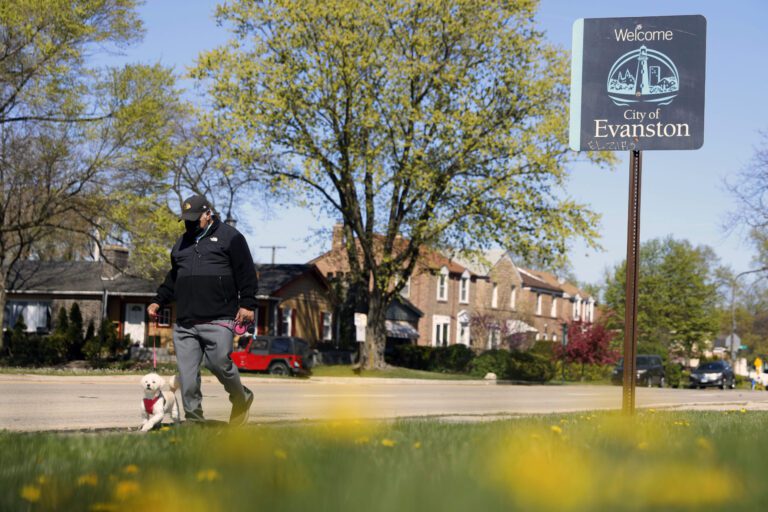Evanston’s Reparations Program Faces Legal Challenge
A groundbreaking reparations initiative in Evanston, Illinois, offering $25,000 payouts exclusively to Black residents, is now entangled in a legal dispute. A class action lawsuit has been filed, arguing that this taxpayer-funded program, estimated at $20 million, is unconstitutional due to its race-based eligibility criteria.
Legal Background
The U.S. Supreme Court’s recent decision to overturn affirmative action in college admissions may lend support to the plaintiffs in this case. A hearing is scheduled for this Friday, where Judge John F. Kness will deliberate on Evanston’s motion to dismiss the lawsuit. The suit, filed by the conservative group Judicial Watch, alleges that the program violates the Equal Protection Clause of the Fourteenth Amendment.
Reparations Program Overview
Evanston’s reparations program, touted as the first of its kind in the nation, was initiated six years ago. Here’s a brief overview of its operations:
- Total Disbursements: Over $6 million has been paid out.
- Beneficiary Criteria: Payments are designated for Black residents and their descendants who lived in Evanston from 1919 to 1969.
Lawsuit Allegations
The legal complaint centers around several key points:
-
Racial Eligibility: The lawsuit argues that using race as a determining factor for distribution of reparations fails to serve a compelling governmental interest. Additionally, it claims that the city cannot show that this approach is narrowly tailored to address the issues at hand.
-
Lack of Direct Experience Requirement: The plaintiffs highlight that the current criteria do not limit payments to individuals who directly suffered from discrimination.
- Alternative Solutions Ignored: Judicial Watch contends that the city should have explored race-neutral alternatives, such as requiring proof of discrimination experienced by recipients’ ancestors.
Plaintiffs’ Claims
Six plaintiffs assert that they meet all established eligibility requirements, aside from the race criterion. Tom Fitton, President of Judicial Watch, commented on the matter, stating,
“The Evanston, Illinois’ ‘reparations’ program is nothing more than a ploy to redistribute tax dollars to individuals based on race… This scheme unconstitutionally discriminates against anyone who does not identify as Black or African American.”
City’s Defense
In response to the allegations, Evanston’s legal team has pushed back on claims of legal standing. The city argues that:
-
No Legal Standing: The plaintiffs are not eligible because they did not apply during the last application period in 2021. Evanston maintains that the court does not serve as a suitable venue for their grievances regarding policy disagreement.
- Funding Challenges: Evanston halted payouts in March, citing difficulties in sourcing adequate funds. The main revenue stream—a 3% sales tax on recreational marijuana—has underperformed, impacting the program’s viability.
Broader Implications
Evanston’s initiative is part of a growing movement across the United States, with cities like Boston, Detroit, and St. Paul considering similar reparations programs. Furthermore, discussions about state-level reparations are gaining traction in places like California and New York.
Federal Considerations
At the federal level, discussions are brewing among certain progressive legislators who seek to establish reparations policies to address the legacy of slavery. These proposals are estimated to be costly, raising concerns about their feasibility in a Republican-led Congress.
Conclusion
The legal battle over Evanston’s reparations program highlights significant complexities in addressing historical injustices while navigating contemporary constitutional standards. As the court prepares to hear this landmark case, the outcome may set a precedent for similar initiatives nationwide.
For ongoing updates on this case, visit Judicial Watch and stay informed about developments in reparations discussions across the country.


